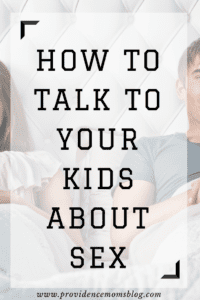 One thing I can guarantee about parenting is that The Good Timing Fairy is rarely going to grace you with her presence. On the contrary, The Bad Timing Fairy will often swoop in, bringing vomiting children the night before your important professional presentation, an abrupt end to Paw Patrol obsessiveness the week before the Pinterest-perfect themed birthday party you have planned, and questions about things like death and sex and existentialism when you are in the car 5 minutes away from soccer practice.
One thing I can guarantee about parenting is that The Good Timing Fairy is rarely going to grace you with her presence. On the contrary, The Bad Timing Fairy will often swoop in, bringing vomiting children the night before your important professional presentation, an abrupt end to Paw Patrol obsessiveness the week before the Pinterest-perfect themed birthday party you have planned, and questions about things like death and sex and existentialism when you are in the car 5 minutes away from soccer practice.
If you have given any thought to how and when you might have “The Talk” with your child, you may imagine yourself intentionally sitting down with your son or daughter at the appropriate age (which you will somehow be able to magically determine) andhaving a long heart-to-heart chat. You will have all of the answers, and your child will eagerly and gratefully accept the wisdom you have to share. Please, do yourself a favor and free yourself of that idealized after school special fantasy. It probably won’t go down like that, but that’s OK. You won’t ruin them for life if the first foray into conversations about sex doesn’t go exactly as planned.
So how can you prepare now for the inevitable blindsiding that is in your future?
- Lay the groundwork by getting comfortable with using the correct names for anatomical parts. Vulva, vagina, clitoris, nipples, anus, penis, scrotum. The research is clear that this practice encourages positive body image, openness, and body confidence. In addition, using the correct names helps eliminate confusion when children are talking about their bodies with doctors or in the case of injury or abuse. Create an environment where it is acceptable for your child to ask questions about their body or their observations about themselves.
- Recognize and address any discomfort you have with talking about sex and reproduction. Did looking at the above list of words create worry in you? Do you feel confident in using those words without embarrassment? Have a conversation with your parenting partner if applicable to get these areas of discomfort out into the open. One place to start is talking about how you both first learned about sex and reproduction, and what parts of that process you feel worked well for you and what you might want to do differently for your own child.
- Think about what kind of message about sex and sexuality you want to convey to your child. If your goal is to convey that intercourse and reproduction are a healthy part of human existence, your tone and language choices should match. When you discuss things like menstruation with your son or daughter, think about how to address any issues of shame or secrecy that can accompany it.
- Build your library now. It’s Not the Stork is a good place to start for language and explanations appropriate for children age 4ish and up. By the same group, It’s So Amazing is a great resource for children aged 7 and up. For slightly older children who may want to do some reading on their own, It’s Perfectly Normal is suitable for ages 10 and up. Reading through these books yourself ahead of time will help you with centering your thoughts on developmentally appropriate ways to explain concepts and will also help orient you to some of the areas that may be part of your discussions at different ages.
- Know that the conversations won’t all happen at once. The first question your child asks might be more concrete, like “why doesn’t my baby sister have a penis too?” or it could be a little bigger, like “How did that baby get in your belly?” or “What the heck are ‘lovers’ and what do they do, anyway?” (Thanks, popular music!) For the more simple questions, answer what is asked and wait for your child to ask their follow up questions, if any. They will let you know how much they are ready for, and when. Follow their lead. It’s OK if you don’t feel like you have adequate time to answer or if you aren’t 100% sure what you want to say. Respond by acknowledging their question and tell them that you want to take a little time to make sure you have the best information to give them, then make a plan to follow up with a conversation within a day or so.
That all seems pretty manageable, right? Set a good foundation with these five steps now and you will be ready when that “Mom? I have a question…” comes hurtling at you out of nowhere from the backseat. Good luck, we are always here with a virtual hug (or glass of wine) if needed.













